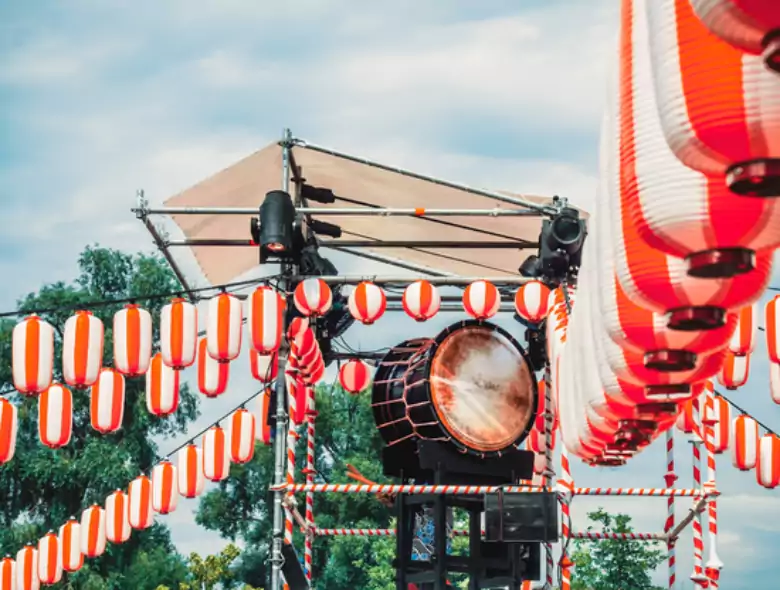Japan, a country steeped in tradition and rich cultural celebrations, holds a special place for the Obon holiday. This annual event is a time of remembrance and festivities, where families come together to honor their ancestors and celebrate the circle of life.
The Obon holiday, also known as the Festival of Souls, is a captivating experience that draws both locals and tourists.
In this article, we’ll delve into the heartwarming essence of Obon, exploring its meaning, the captivating Bon Odori dance, the vibrant Obon festivals, the significance of house cleaning, and the legendary Spirit Horse.
If you are looking for a new home in Japan, be sure to check out all of the great listings courtesy of Village House.
Obon Meaning
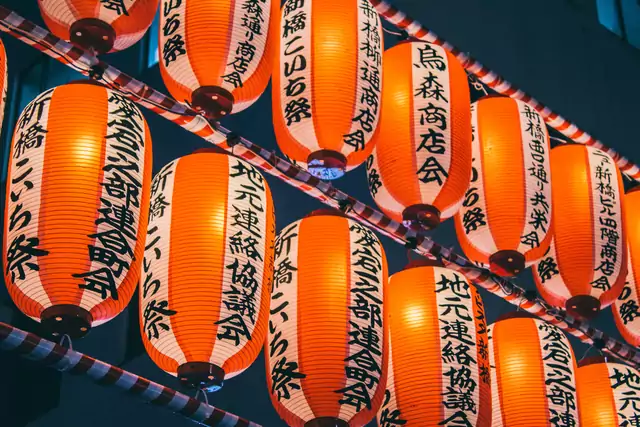
Obon, deeply rooted in Buddhist customs, is a traditional Japanese holiday that typically takes place in mid-August.
The primary significance of Obon is to honor and pay respect to deceased ancestors, welcoming their spirits back to the earthly realm.
According to Buddhist beliefs, during this time, the spirits of the deceased return to visit their living relatives.
This period is seen as a time of reunion, remembrance, and gratitude for the lives of those who came before.
Bon Odori
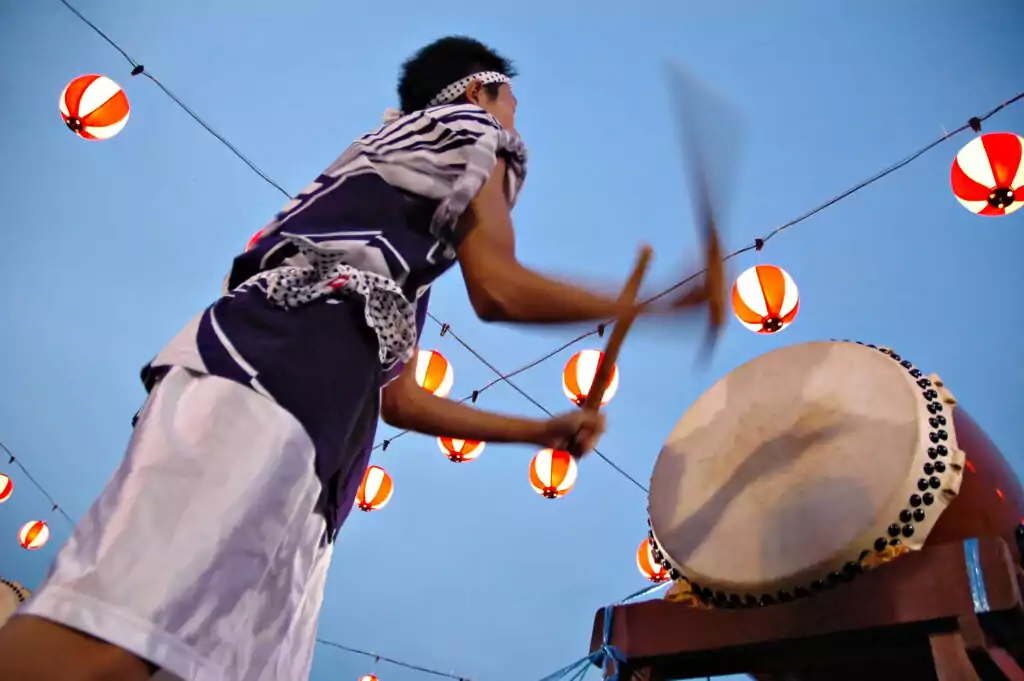
One of the most enchanting aspects of the Obon holiday is the mesmerizing Bon Odori dance.
Bon odori is a traditional folk dance performed during Obon festivals across Japan. The dance involves graceful movements and lively music, creating an atmosphere of joy and unity.
Many regions in Japan may have their unique Bon Odori, with variations in choreography and music, adding diversity to the celebrations.
For a foreigner visiting Japan, participating in Bon Odori is an incredible way to immerse yourself in Japanese culture and feel a sense of camaraderie with the locals.
Obon Festivals
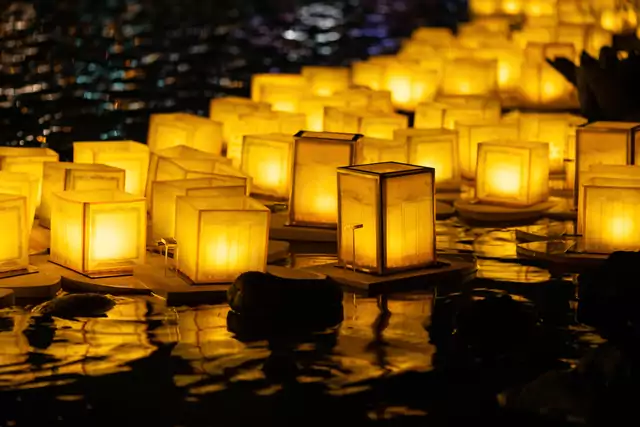
Obon festivals are the heart and soul of this holiday, and they are held throughout Japan. While some festivals are grand and bustling, others maintain a more intimate and traditional ambiance.
Major cities like Tokyo, Kyoto, and Osaka boast grand Obon festivals with dazzling displays of lanterns, captivating performances, and bustling food stalls.
Various customs are observed across different regions in Japan. Lanterns hold a special significance, as they are hung in front of houses to serve as guiding lights for the spirits of ancestors.
Families pay their respects to departed loved ones by visiting graves and making food offerings at house altars.
As the Obon period draws to a close, a beautiful ritual takes place where floating lanterns are gently released into rivers, lakes, and seas. These lanterns serve as beacons, guiding the spirits back to their world with love and reverence.
Each region has its unique way of celebrating Obon, making this cherished holiday a tapestry of diverse and heartfelt customs.
Tourists visiting Japan during the Obon season should take full advantage of attending one of these vibrant festivals.
The sights and sounds are a feast for the senses, and the cheerful atmosphere will leave you with unforgettable memories. It’s an excellent opportunity to witness Japanese traditions up close, interact with locals, and partake in the festivities.
House Cleaning

Preparation for Obon goes beyond attending festivals and dance performances. A significant custom associated with this holiday is house cleaning.
Families take time to clean their homes thoroughly, not only to welcome their ancestors’ spirits but also to provide a fresh start for the new year.
While this might sound like an ordinary chore, during Obon, it becomes a meaningful and communal activity. Families come together to tidy up, declutter, and decorate their homes with beautiful flower arrangements and traditional lanterns.
The process of cleaning and decorating brings a sense of unity and purpose, creating a heartwarming ambiance.
Spirit Horse
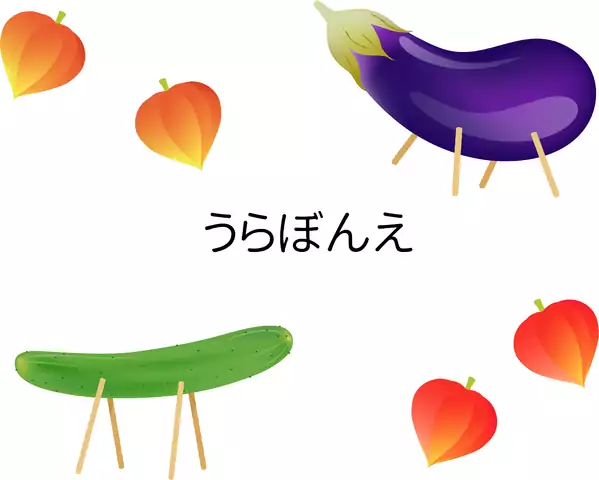
A fascinating and legendary aspect of the Obon holiday is the tale of the Spirit Horse. According to folklore, it is believed that ancestral spirits use a mystical horse to travel back and forth between the world of the living and the world of the dead during Obon.
In certain regions, you may find beautifully adorned horse sculptures made of straw, which symbolize the Spirit Horse. These sculptures are displayed during the festivities and are sometimes paraded through the streets.
Witnessing the Spirit Horse adds a touch of magic and enchantment to the Obon celebrations, creating a unique experience for visitors.
Some families even create their own spirit horse model by attaching chopsticks to eggplants and courgettes. The vegetable represents the body, and the chopsticks represent the legs.
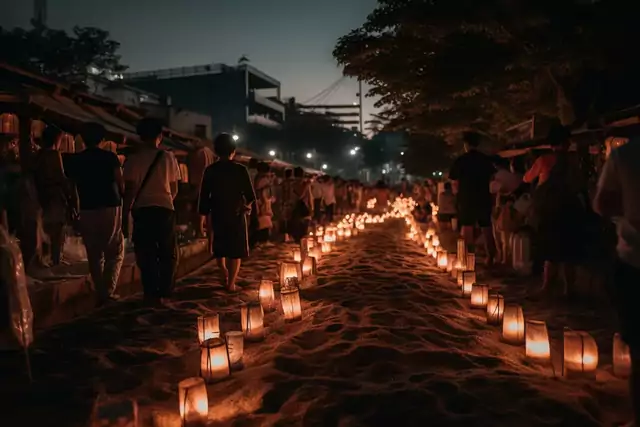
The Obon holiday in Japan is a captivating insight into the heart of Japanese culture and spirituality. The festival’s essence lies in the warmth of family bonds, the reverence for ancestors, and the sense of community that permeates every celebration.
Whether you’re a local or a tourist, Obon offers an opportunity to forge meaningful connections, make cherished memories, and gain a profound understanding of Japan’s rich heritage.
If you are looking for a new home or apartment, please head over to the Village House website to see our diverse selection.
Related articles:
- August Summer Festivals in Tohoku
- Best Ways to Spend Your Golden Week Holidays
- Ideas to Spruce Up Your Home For the Holidays
- Japanese Holidays
- Adulting 101: Deep Cleaning Your Washing Machine


